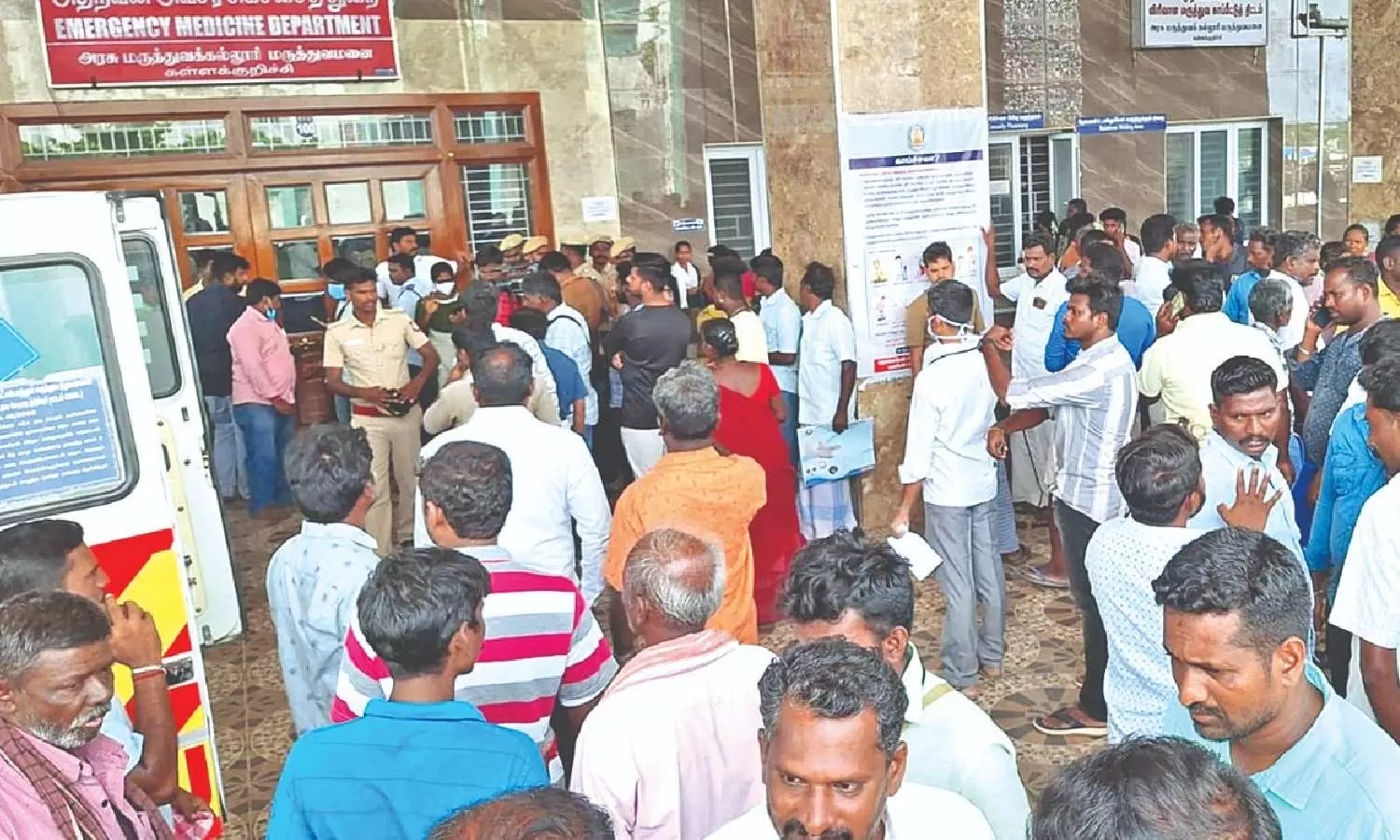
In a tragic reminder of the free run enjoyed by vendors of spurious liquor in the state, over 35 people lost their lives after consuming ‘packet arrack’ in Kallakurichi district. The deaths were due to consumption of ‘methanol mixed arrack.’ In the aftermath of the incident, Chief Minister MK Stalin has directed CB-CID officials to probe the source of methanol and ensure its complete destruction at the local level. About 200 litres of arrack has already been seized and the presence of deadly methanol was confirmed through an analysis.
A similar case of alcohol poisoning took place in May last year in Marakkanam (Villupuram) and Chengalpattu where 23 lives were lost. Similarly, the state reported six such fatalities in 2021, and 20 deaths in 2020. The numbers might appear to be a fraction compared to metrics collated from a decade back. A report from 2015 said Tamil Nadu had the most number of fatalities in the country due to illicit liquor consumption over a period of ten years — from 2005-2014. Statistics compiled by the National Crime Record Bureau (NCRB) during the said period tells us that the state registered 1,509 deaths due to spurious liquor.
Per data from this period, the nationwide toll was pegged at 11,032, with Karnataka reporting the second highest toll of 1,421, followed by Punjab with 1,364 deaths, and Gujarat, where there is a prohibition in place, had 843 fatalities. The futility of liquor bans was evident in dry states even last year, when poisonous alcohol killed at least 27 people in Bihar, while in 2022, at least 42 people died in Gujarat. Punjab, which is reeling from a substance abuse problem, reported 140 deaths in 2020 owing to methyl alcohol infused liquor.
It is noteworthy that since 2002, methanol, a compound regarded as the main catalyst for hooch tragedies, was brought under ambit of the Tamil Nadu Prohibition Act, 1937. Amendments were also brought to the Tamil Nadu Denatured Spirit, Methyl Alcohol and Varnish (French Polish) Rules, 1959, to maintain control over methanol supply. Despite such regulations being enacted, there seem to be back-channels through which vendors are able to procure methanol, brew the toxic concoction, and distribute it among hapless buyers for a fraction of the cost (in sachets) that it would take to procure a quarter of liquor at the government run Tasmac outlets.
The recent tragedy has offered the opposition an opportunity to call out the ruling dispensation for its failure to crack down on such nefarious operators with an iron fist. For instance, the BJP’s TN chief K Annamalai placed the onus of the production and sale of illicit liquor on functionaries and cadres belonging to the ruling dispensation, alleging that the points of sale were located in the vicinity of courts, police stations, government offices, and in prime areas of the town, in full public view with the knowledge of local police.
Several political observers have also pointed out the nexus of law enforcers and those involved in the brewing of illicit liquor should not be ruled out. Having said that, it’s painful to see how citizens have been inured to such disasters occurring frequently. As casualties of such incidents are mostly those struggling to eke out a living, justice might be a far cry. If only the administration could go beyond solatium and get serious about enforcement and zero tolerance on illicit liquor.

